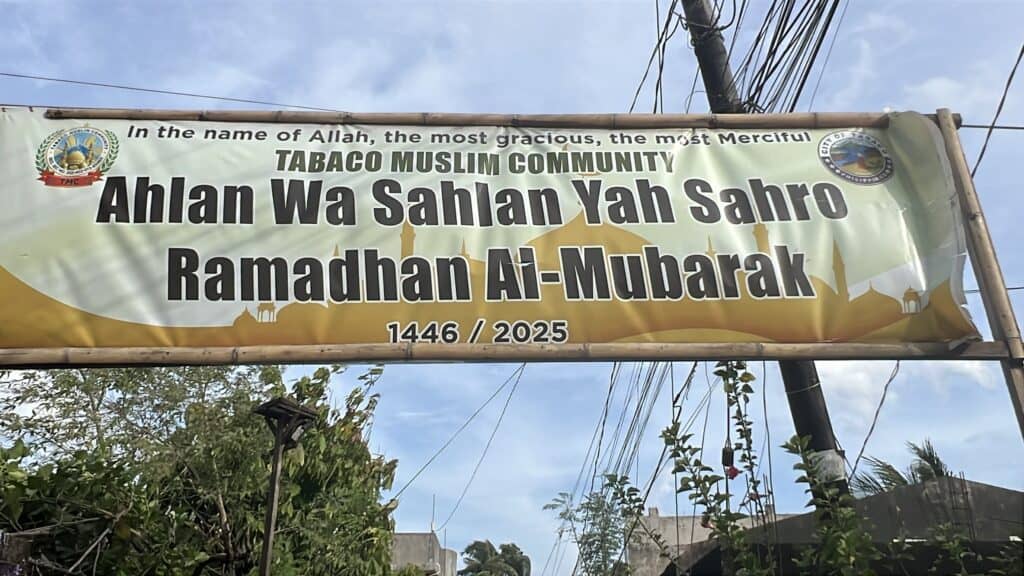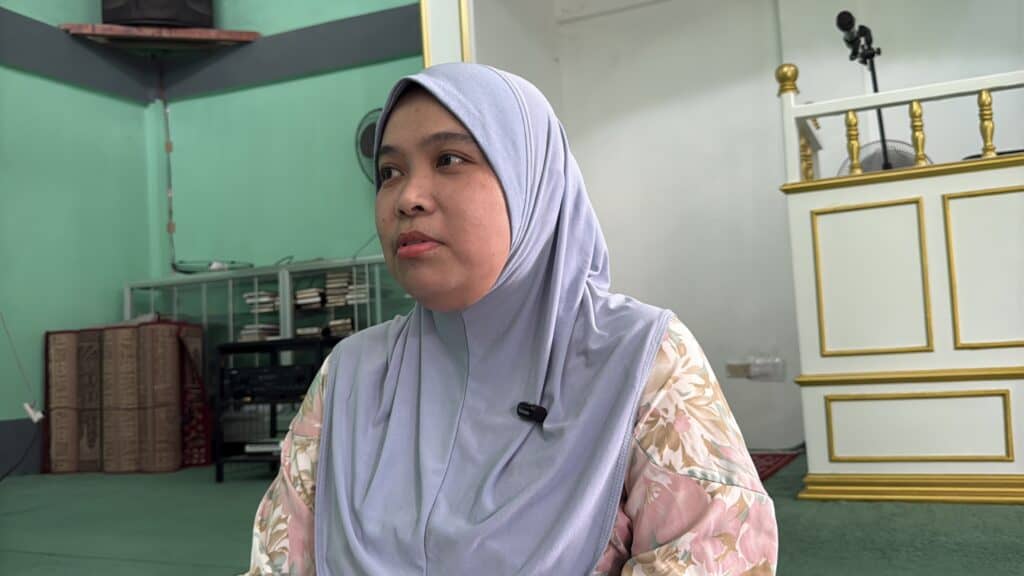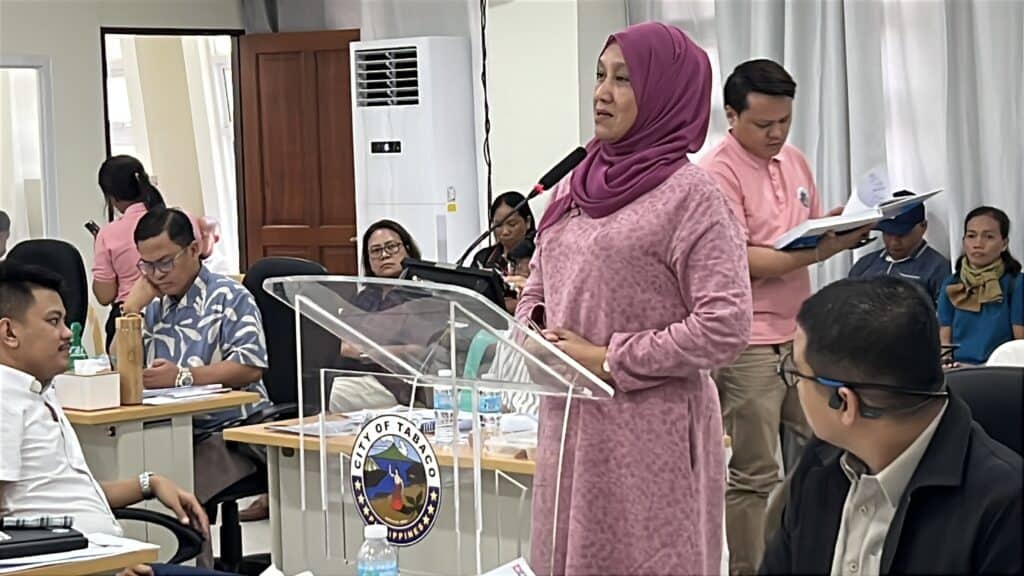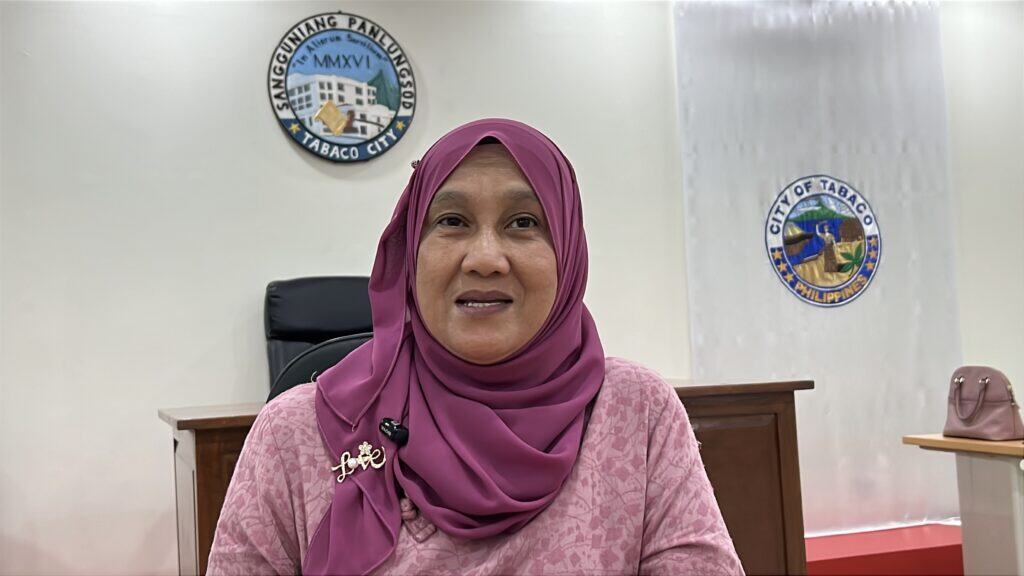In a city where Muslims remain a small minority, Muslim women leaders are rising to challenge stereotypes, push for representation, and build a more inclusive future.
One of them is Rahima Mala Orandig, president of the Tabaco Muslim Women’s Organization (TMWO). Born in Mindanao, she moved to Tabaco City at age 9 with her mother in search of a better life. But growing up, she faced exclusion, from being called a terrorist for wearing a hijab to the lack of a mosque or halal food options.
“I’ve experienced it firsthand, being judged, called ‘Abu Sayyaf’ in school. There was no safe space to show our identity,” Orandig said.
Her painful experiences inspired her to found TMWO, which promotes peace and aims to correct harmful misconceptions about Muslims. Under her leadership, the group has forged partnerships with the local government unit (LGU), gaining visibility and access to public programs.
“Now we can join Women’s Month events, speak at public forums, and represent our community. That was unthinkable years ago,” she added.
Orandig believes these small but significant changes are helping Muslim residents feel accepted. “There’s more freedom now,” she said. “We can wear our identity proudly.”


For Orandig, that hard-earned freedom isn’t just personal, it’s something she hopes her children will inherit and protect. But raising Muslim children in Tabaco City comes with new questions.
“Sometimes, my kids ask me why they can’t just be like everyone else,” she said quietly. “I tell them, ‘Anak, we’re Muslims. We have our own ways, our own beliefs. That doesn’t make us less, just different.’”
Her response is patient but firm, an act of both love and cultural preservation. While her children have never known a time without a mosque or a community to turn to, she worries that they may take these things for granted.
This generational shift, from her mother’s quiet migration, to her own fight for recognition, to her children’s search for identity, captures the evolving meaning of belonging for Muslims in Tabaco.
Another advocate making change from within the LGU is Councilor Insit Tanggo. A Roman Catholic by birth, Tanggo converted to Islam in 2006 after marrying a Maranao. Before entering city politics, she served as barangay captain in San Miguel Island for a decade and led the city’s association of barangay captains.
Encouraged by then-Mayor Krisel Lagman to run for city council, Tanggo initially hesitated. “I didn’t feel welcome in the city as a Muslim,” she admitted. Her 2013 campaign failed, and she wondered if her religion played a role in the loss.


“In our barangay, I felt accepted. But in the city, it was different, it felt like I didn’t belong,” she recalled.
Still, with continued encouragement, she ran again and eventually won a seat on the council. Since then, Tanggo has pushed for policies supporting Muslim families, including securing land for Muslim housing in Tabaco’s resettlement area.
One of her biggest initiatives is the call for a dedicated Muslim cemetery, a deeply important need for the community, whose members often transport their deceased to Legazpi or even back to Mindanao for proper Islamic burials.
“We already have a mosque. Now, we need our own cemetery. Burial is sacred to us, it must follow our traditions,” she said.
The project is still awaiting final approval, but Tanggo remains hopeful. Her efforts reflect a growing recognition that inclusion is not just about tolerance but about structural support.
Also expressing gratitude for this shift is Imam Sihaboden Alon, who teaches Arabic and Islamic values in Tabaco. A native of Lanao del Sur, he moved to Bicol for livelihood and has since witnessed the community evolve.
“Before, we were ignored. Now we’re seen and heard. That’s a blessing,” he said, smiling.
Together, these leaders are proving that Muslim Filipinos are not outsiders in Tabaco City, they are part of its future. Through persistence and partnership, they are building a city where diversity is not feared, but celebrated.| With report from Hannah Franchezka Boragay
